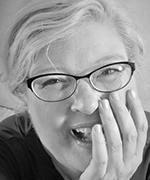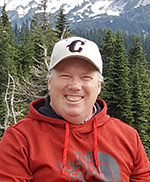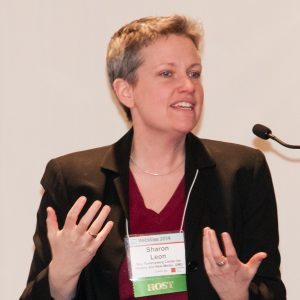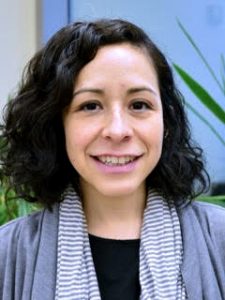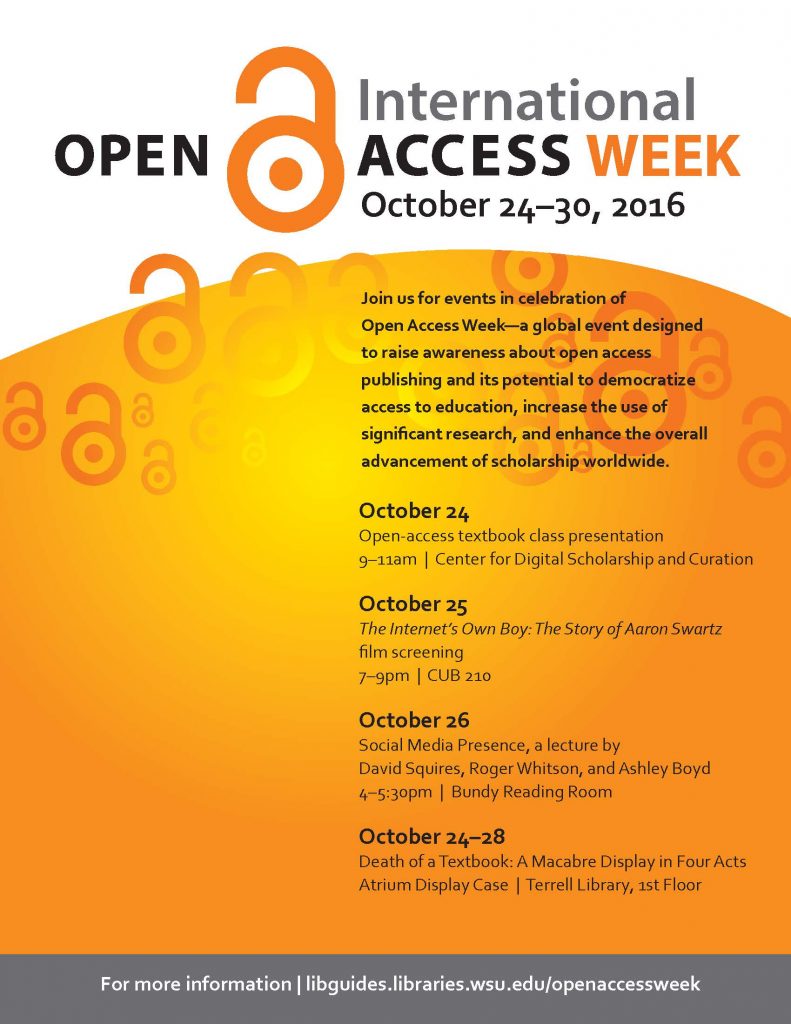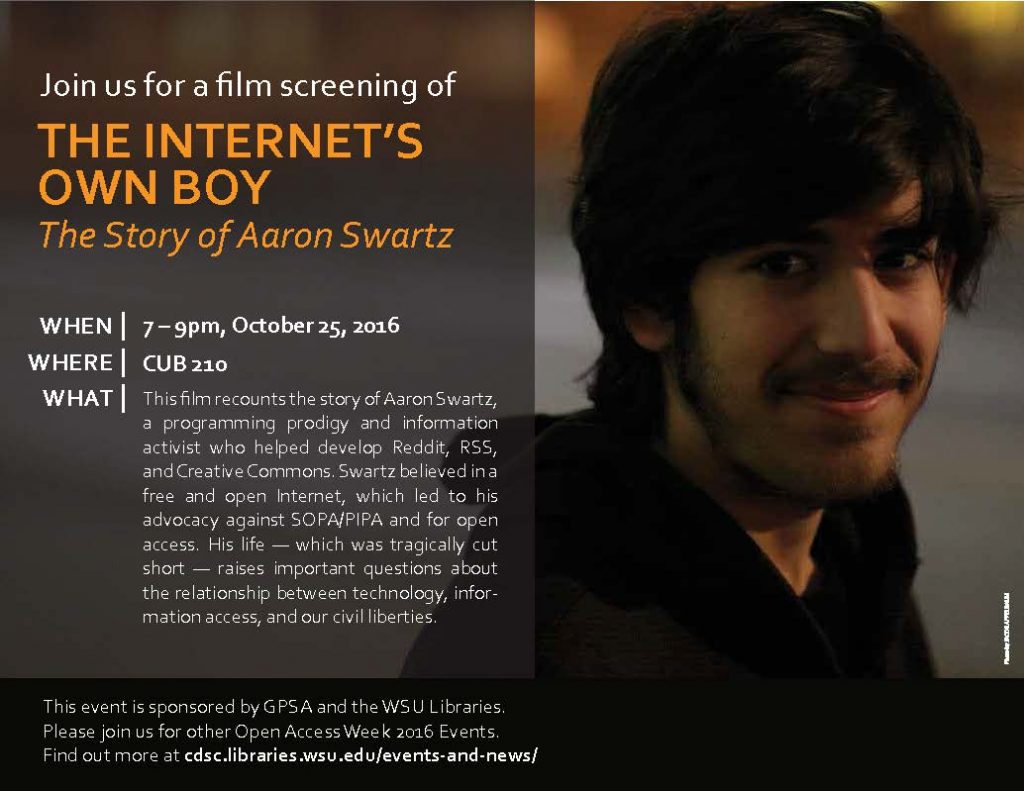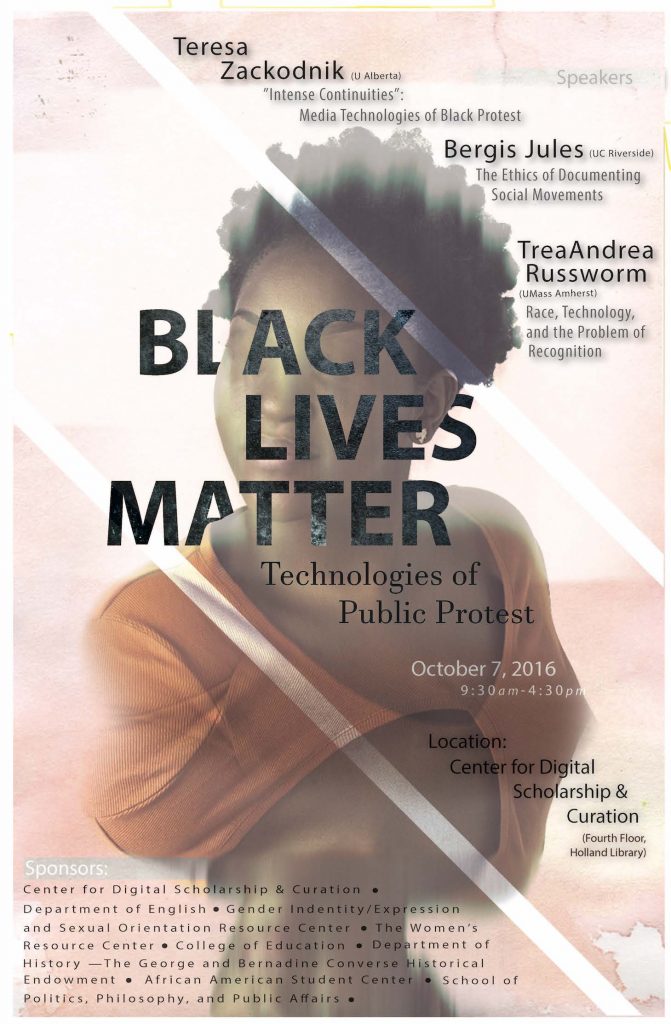CDSC Spring Symposium 2018
Michael WynneCDSC Spring Symposium 2018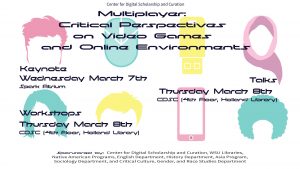
Multiplayer: Critical Perspectives on Video Games and Online Environments
Games and online environments allow for infinite possibilities to create new personas and new societies that are radically different than real life. But this freedom doesn’t mean that online everyone is equal and social inequities are not replicated. Acknowledging that virtual worlds replicate the social values of their creators is a small part of the 2017-2018 WSU Common Reading book, “Ready Player One,” when one character reveals that offline they are definitely nothing like their avatar and they did this to embody a more privileged space in the Oasis, the virtual world at the core of the story. The same goal – to complicate games and online environments – is something that guests for this symposium are all interested in doing in their scholarship and praxis. The presenters will critique, interrupt, and challenge game play so our digital future is does not simply replicate and reinforce the inequity of our analog past.
Sponsors:
Center for Digital Scholarship and Curation, WSU Libraries, Native Programs, English Department, History Department, Asia Program, Sociology Department, and Critical Culture, Gender, and Race Studies Department.
See the schedule for the Open Gameplay & Keynote with Matt Swanson on March 7th
March 8th: Symposium and Workshops
- Thursday, March 8th, 9:00am-5:30pm
- Center for Digital Scholarship and Curation, 4th floor Holland Library
- The morning talks will be livestreamed
Symposium (Facebook Event)
9:00-10:00am
Dr. Megan Condis, Assistant Professor of English, Stephen F. Austin State University
Speaking Topic: Gender, Gaming, and Online Culture
Dr. Condis completed her PhD at the University of Illinois at Urbana-Champaign. Her forthcoming book, Gaming Masculinity: Trolls, Fake Geeks, and the Gendered Battle for Online Culture, examines the way video game fans compose their identities online. She is a regular contributor to Unwinnable. She also serves as a member of the Editorial Board for Resilience: A Journal of the Environmental Humanities (University of Nebraska Press) and the Journal of Gaming and Virtual Worlds (Intellect Books). She writes about gender and popular culture on her blog at https://megancondis.wordpress.com/ and on Twitter @MeganCondis.
10:00-11:00am
Dr. Edmond Y. Chang, Assistant Professor of English, Ohio University
Speaking Topic: Technonormativity
Dr. Chang’s areas of interest include technoculture, gender and sexuality, cultural studies, video games, popular culture, and contemporary American literature. He earned his Ph.D. from the University of Washington and his dissertation is entitled “Technoqueer: Re/con/figuring Posthuman Narratives.” This past fall, he taught a class at called “Ready Player Two: Critical Approaches to Virtual Worlds and Video Games.” Recent publications include “Queergaming” in Queer Game Studies (University of Minnesota Press) and “A Game Chooses, A Player Obeys: BioShock, Posthumanism, and the Limits of Queerness” in Gaming Representation (Indiana University Press). He is currently working on his first book tentatively called Queerness Cannot Be Designed: Digital Games and the Trouble with Technonormativity.
11:00am-12:00pm
Dr. Kishonna L. Gray, Assistant Professor in the School of Social and Behavioral Sciences in the New College, Arizona State University
Speaking Topic: Intersectionality in Online Environments
Dr. Gray is also a Faculty Associate at the Berkman Klein Center for Internet & Society at Harvard University. She previously served as a MLK Scholar and Visiting Professor in Women & Gender Studies and Comparative Media Studies at MIT. Her work broadly intersects identity and new media although she has a particular focus on gaming. She is the author of Race, Gender, & Deviance in Xbox Live (Routledge, 2014) which as been described by T.L. Taylor “an insightful, original, and compelling piece of research.” Her current monograph is tentatively titled “On Being Black And…The Journey to Intersectionality in Digital Gaming Culture” and is currently under contract with LSU Press. Her work has been featured in both academic and public outlets. She’s is also a featured blogger and podcaster with “Not Your Mama’s Gamer.” Follow her on Twitter @KishonnaGray.
Workshops (Facebook event)
1:30pm – 3:30pm
Matt Swanson – An Overview of the Game Creation Process
Edmond Chang – #WeNeedDiverseGames: Close Playing Gender, Sexuality, and Race in Games
3:30pm – 5:30pm
Megan Condis – Introduction to Creating Interactive Games with Twine
Kishonna Gray – Designing Games for Empathy
